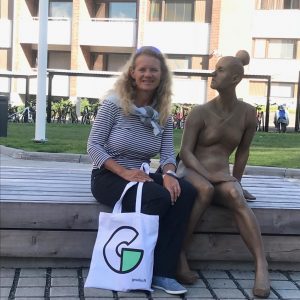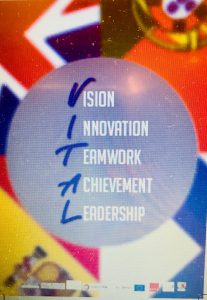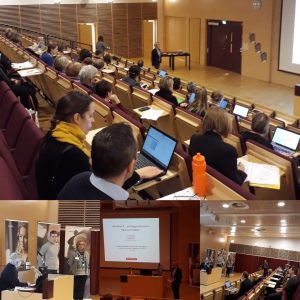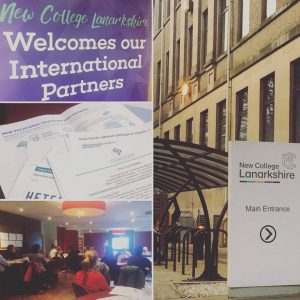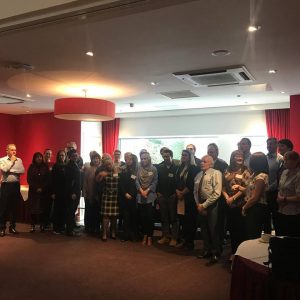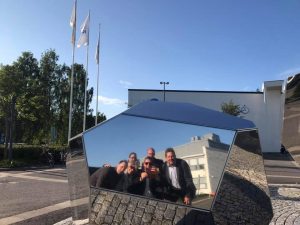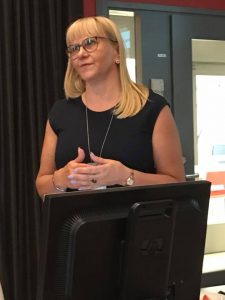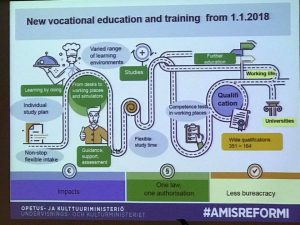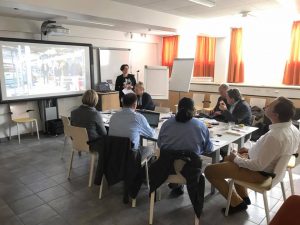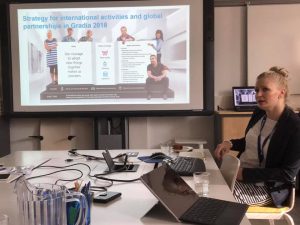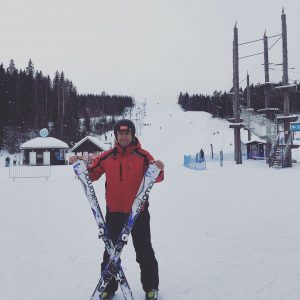
My name is Rait and I am from Voru, Estonia. I study nature guiding/travel assistant program at Vorumaa Vocational Training Centre. Our program lasts for two years, from what I have completed first year. Our program is adult training program, so must of us actually work somewhere else.
This year I had unique possibility to take part in Tourism Winter School program at Gradia Jyväskylä. It was kind of exchange student program for three weeks, possibility to see how they study here, what they do and what they learn. Nextly you will be given an overview about what I did, how I felt and how was the outcome comparing to the expectations.
Firstly, after 13-hour trip from Voru to Jyväskylä, Finland, it was exhausting already. Trips by bus, ferry and little bit on foot had its own part to do. Minus degrees also have been following us for most of the three weeks here, so it got better as timed moved on.
Once arrived to the campus, we unpacked our things at dormitory rooms next to the main building and started to get ready. As it is now high season for winter activities, there were lots of active winter clothing, warm clothes, boots and hats in the luggage.
Then our program kicked off. Firstly we had meet-and-greet game with Finnish students. It was fun, well organized and at the same time chance to get to know each other. For me, as I was nearly double the age as most of students here, it was fun too. The first impressions were extremely positive – new building, modern equipment in the classrooms, good restaurant, lots of space. The classrooms itself are unique. Students lay on bean bags, relax, nobody really sits behind the table. For sure there are so-called normal classrooms too but they are boring, because they are the same in every country. Here they were for opposite, kind of innovative and relaxed. It felt good. Facilities and options to do sports or educate themselves are really good here. Quality is kind of key word here to describe the acitivites and mentality.
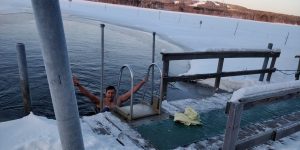
During the three weeks spent here I had possibility to try and take part in different winter outdoor activities. At the same time we had possibility to see and take part in preparations for outdoor activites. We tried snowshoeing, alpine skiing, fatbiking, skating, tour-skating, winter swimming and Finnish sauna. Also we had organized cultural programme by Finnish hosts at Jyväskylä surroundings. The activities were really well organized and smooth. The most important thing about winter outdoor activities was personal safety. For sure, everybody’s safety is everyone’s own thing to take care of, but it should always come first. Before any outdoor activities we were given instructions what to do and what is not allowed. Safety techniques, movement, keeping eyes open and looking around the area, it all is very improtant. As for equpment, it is basics that it has to be well suited, right size, proper clothing in layers and personal will to do something and learn. These three weeks have been for me as a great learning curve, because I did lots of things fist time in my life during the time spent here. For example alpine skiing, fatbiking, tour skating, snow soccer, snow frisby, cross country skiing. Everything comes down to the basic movement and techniques, will to learn and not to give up. It is not really important how many times you fall down, but how many times you get up. It matters the most and keeps going. In the end, even if some things are hard or tricky, it is still you, who are better than ever before. For me, I got more confidence doing different winter outdoor activities here, and had fun at the same time.
Because of the fact that Estonia and Finland are neighbouring countries and we have lots of in common, we have differences also at the same time. Living standards are totally different, as are the priorities among students. Students here do lots of things by themselves, not so much theory like we have. It all comes down to differences of personalities rather than what somebody likes. Everything is done or not done by free will of the persons and everybody learns to himself, not to the teacher or to the school. Finnish students seem serious about their studies, and it seems for me that vocational training centre is popular here. For example, in Estonia it is not so popular, but in Estonia it is more popular among adult students than among teenagers- Finnish students also can teach you or guide you before any activity wintertime. It really amazed me how good teachers the Finnish students can be. Also students here do more, classrooms are for briefing, debriefing or for making different summaries or discussing and making plans.
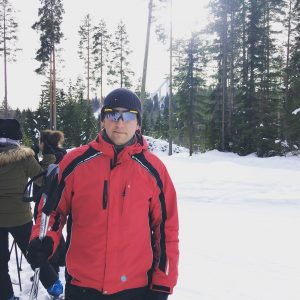
In general it was really good chance that I could take part in Erasmus + Tourism Winter School program at Gradia Jyväskylä for three weeks. The hosts organized lots of different activities, introducing their country, traditions, food, sightseeing and learning programme. I learned a lot, took part in every session, had fun. I can be proud to have had an experience like this one – one of it’s kind at Jyväskylä.
More information Hanna Syvälahti (at)gradia.fi and Timo Lehtonen (at)gradia.fi
